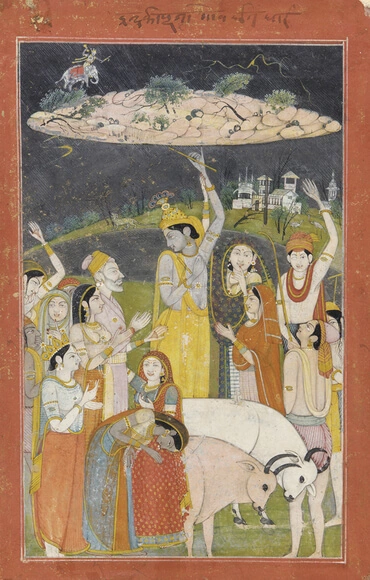1798. That 'Abram said, See, to me You have not given seed' means that there was no internal dimension of the Church, [which is love and faith,] is clear from the meaning of 'seed' as love and faith, dealt with already in 255, 256, 1025, and in what follows below from the meaning of 'an heir'. The fact that love and faith deriving from love constitute the internal dimension of the Church has been stated and shown frequently already. No other kind of faith that constitutes the internal dimension of the Church is meant than the faith which is a product of love or charity, that is, which originates in love or charity.
[2] In a general sense faith embraces everything that is taught by the Church; but doctrinal teachings separated from love or charity do not in any way constitute the internal dimension of the Church, for such teachings are no more than knowledge which is present in the memory and which also exists with the worst of people, even with those in hell. But doctrinal teachings which originate in charity, that is, which are a product of charity, do constitute the internal dimension of the Church, for this dimension is essentially its life. The life itself constitutes the internal aspect of all worship, and so too do all doctrinal teachings that flow from the life that belongs to charity. It is these teachings when they comprise faith that are meant here, and it is faith such as this that constitutes the internal dimension of the Church, as may become clear from the single consideration that anyone who is leading a charitable life has an awareness of all things of faith.
[3] Just examine, if you care to do so, any doctrinal teachings, so that you may see what they are and what they are like. Do they not all have regard to charity, and so to faith that derives from charity? Take simply the Ten Commandments, the first of which is that you should worship the Lord God. Anyone who possesses the life of love or charity worships the Lord God, for it is in this that the life within him consists. Another commandment says that you should keep the Sabbath. Anyone in whom the life of love, that is, in whom charity, is present keeps the Sabbath holy since nothing delights him more than worshipping the Lord and declaring His glory day by day. The commandment that you should not kill has regard entirely to charity. Anyone who loves his neighbour as himself shudders at doing him any injury whatever, and even more at killing him. Likewise with the commandment that you should not steal, for the person who possesses the life of charity would rather give from what is his own to his neighbour than take away anything from him. Equally the commandment that you should not commit adultery. A man in whom the life of charity is present is minded rather to protect his neighbour's wife lest anyone should do such great harm to her, and regards adultery as a crime committed against conscience, such as destroys conjugial love and the responsibilities that go with it. Coveting things that belong to the neighbour is also contrary to the mind of those in whom the life of charity is present, for the essence of charity is to will good to others from oneself and what is one's own, thus they in no way covet what belongs to another.
[4] These Commandments, included among the Ten, are more external matters of doctrine concerning faith, which are not simply retained as knowledge in the memory of him in whom charity and the life of charity are present, but are in his heart. They are also inscribed upon him because they are grounded in his charity and so in his very life, in addition to other things of a dogmatic nature that are inscribed upon him which in a similar way he knows from charity alone. For he lives in accordance with a conscience for that which is right. Anything right or true which he is unable to understand and examine in this fashion he nevertheless believes in simplicity - that is, in simplicity of heart - to be right or true because the Lord has so said. Nor is anything wrong with such belief, even if that which is believed is not in itself true, only an appearance of truth.
[5] People may believe for example that the Lord can be angry, punish, tempt, and the like. Also, they may believe that in the Holy Supper the bread and wine have some spiritual meaning, or that flesh and blood are present in some way or other which they are able to explain. But whether they express the one or the other of these views about the Holy Supper, it makes no difference provided that two things are characteristic of these persons: Few people in fact give the matter any thought at all, and if any do give it any thought it makes no difference which view is held provided, a) It is done from a simple heart because it is what they have been taught, and b) They are leading charitable lives. When they hear that the bread and wine mean in the internal sense the Lord's love towards the whole human race, and the things that go with that love, and man's reciprocated love to the Lord and towards the neighbour, they believe it instantly and rejoice that it really is so. This is never the case with those who possess doctrine yet lack charity. They dispute everything and condemn anyone who does not speak - though they say it is to believe - as they do. From these considerations it may become clear to anyone that love to the Lord and charity towards the neighbour constitute the internal dimension of the Church.







